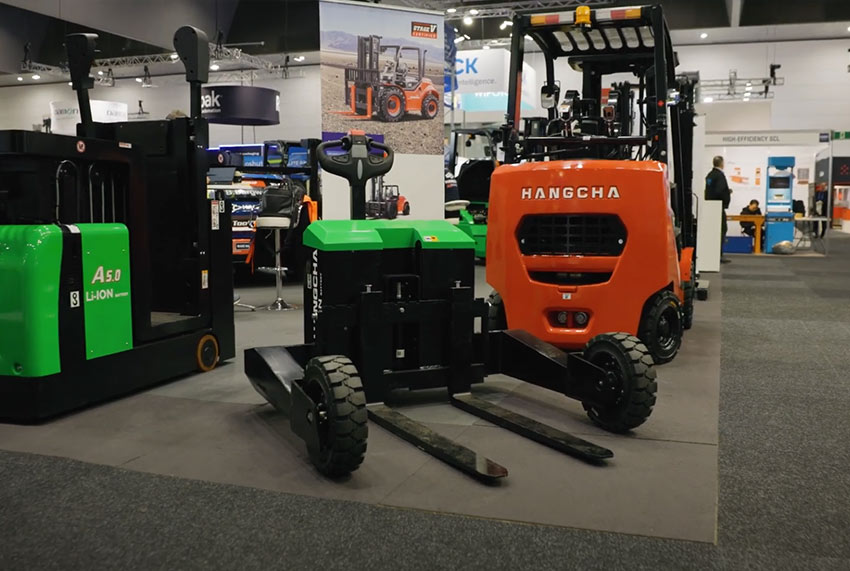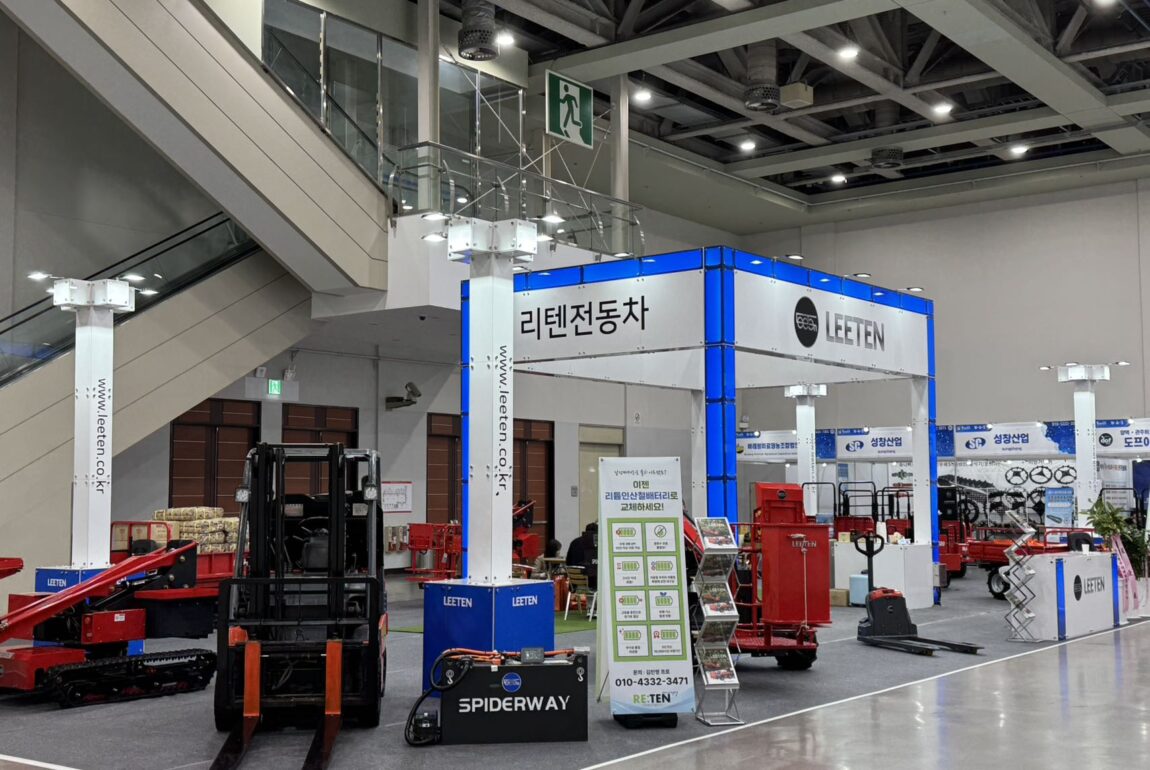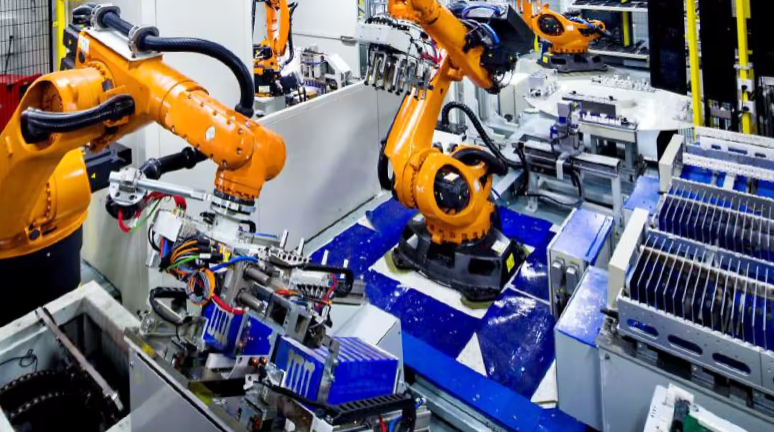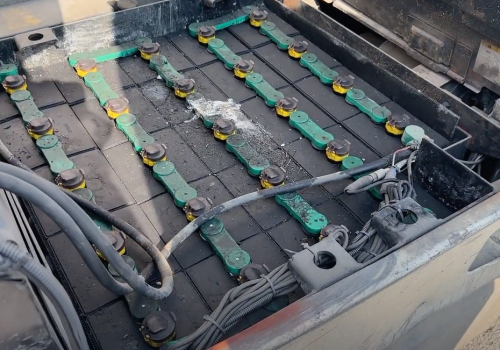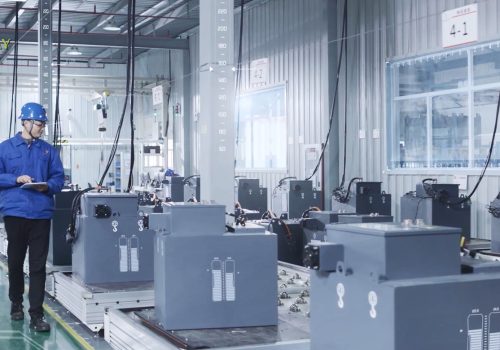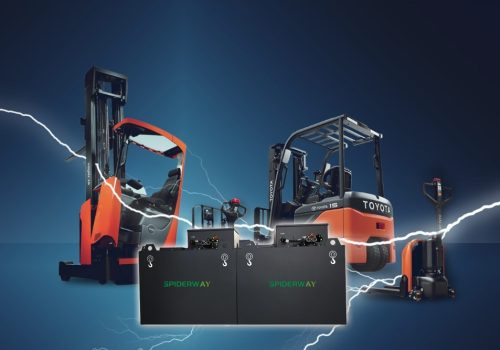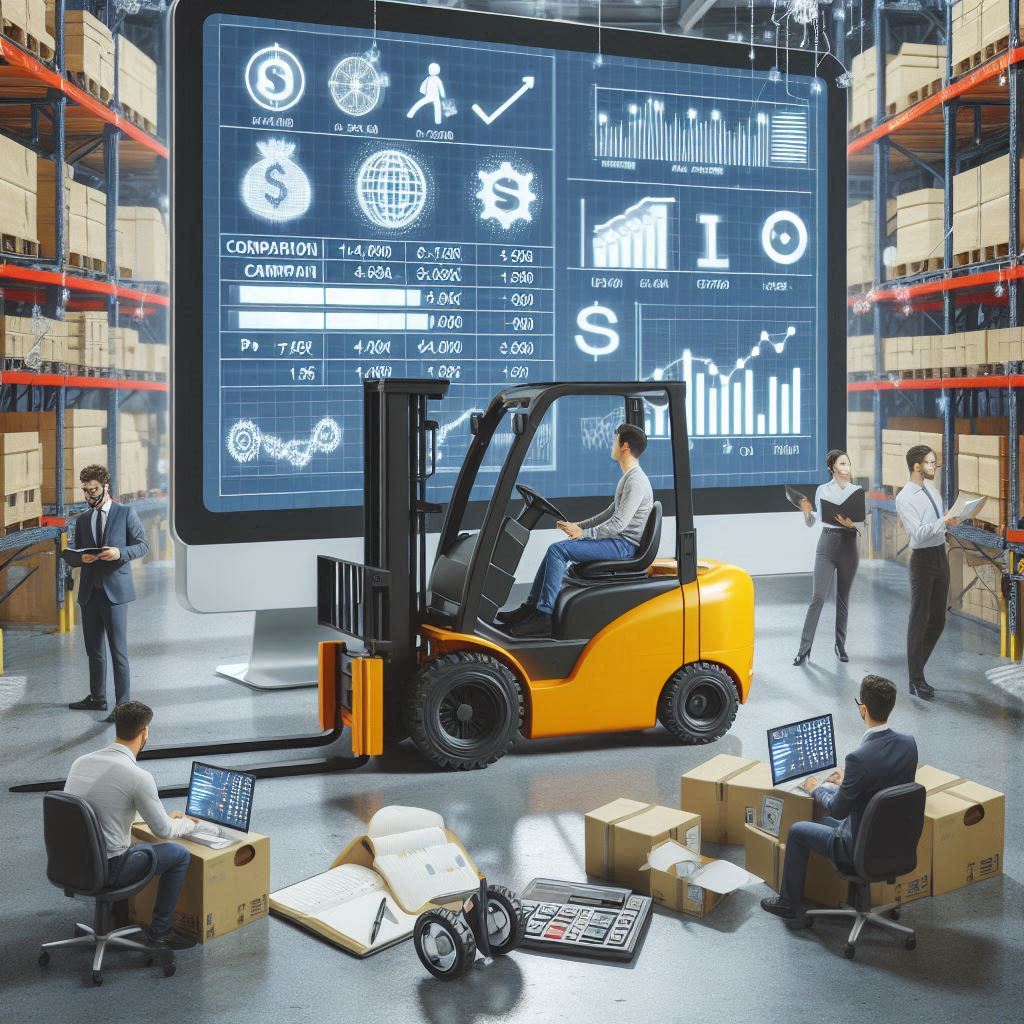
When it comes to powering forklifts, the decision between lead-acid and lithium batteries is not just about the sticker price. The total cost of ownership encompasses more than the initial investment. SpiderWay, a leading innovator in lithium battery technology, sheds light on the comprehensive costs associated with both battery types and highlights the long-term benefits of choosing lithium.
The Overlooked Costs of Lead-Acid Batteries: While lead-acid batteries may seem like the economical choice with a price range of $1000-$5000, the hidden costs can be significant.
- Labor and Time: The maintenance and handling of lead-acid batteries are labor-intensive, requiring constant monitoring, charging, and cooling, which adds up to substantial man-hours annually.
- Storage Space: These batteries are bulky, necessitating dedicated storage areas that may require modifications to meet safety standards, incurring additional costs.
- Occupational Risks: The potential for corrosive liquid spills and the need for specialized equipment for battery safety present ongoing risks and expenses.
- Replacement Frequency: With a lifespan of about 1500 cycles, lead-acid batteries need to be replaced every 2-3 years, adding to the ongoing costs.
The Advantages of Lithium Batteries with SpiderWay: Lithium batteries, such as those offered by SpiderWay, come with a higher upfront cost of $1700-$7000 per battery but provide a range of benefits that can offset the initial expense.
- Space Efficiency: Lithium batteries are compact and lightweight, reducing the need for extensive storage modifications and saving valuable warehouse space.
- Time Savings: Fast charging capabilities mean that lithium batteries can be fully charged in about two hours, allowing for opportunity charging during work breaks without the need for additional personnel to manage battery swaps.
- Energy Efficiency: With an efficiency rate of up to 99%, lithium batteries significantly reduce energy waste compared to the 75% efficiency of lead-acid batteries.
- Enhanced Safety: The solid-state design of lithium batteries eliminates the risks associated with liquid spills and the need for hydrogen sensors in the workplace.
- Performance in Cold Conditions: Unlike lead-acid batteries, which can lose up to 35% of their capacity in cold temperatures, lithium batteries maintain performance, reducing the frequency of battery changes and energy consumption.
- Productivity and Competitiveness: The reduced downtime and improved efficiency of forklift operations with lithium batteries contribute to a company’s overall competitiveness in the market.
The Retrofit Solution with SpiderWay: Existing forklifts can be retrofitted with SpiderWay’s LiFePO4 batteries, which are designed for easy integration and come with a top-tier battery management system for optimal performance throughout their 10-year lifespan and 3500 charging cycles.
- Product on sale
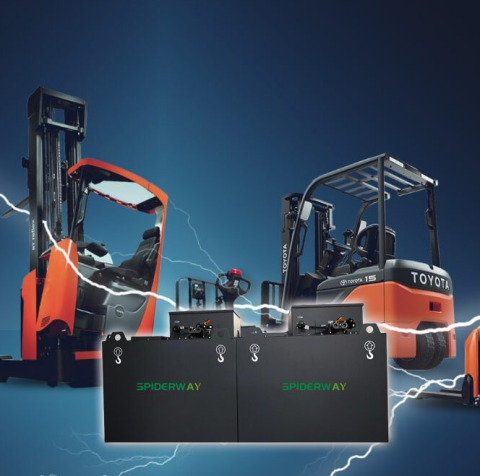 48V 404Ah LiFePO4 lithium battery for LIUGONG forkliftOriginal price was: $5,399.00.$5,318.00Current price is: $5,318.00.
48V 404Ah LiFePO4 lithium battery for LIUGONG forkliftOriginal price was: $5,399.00.$5,318.00Current price is: $5,318.00. - Product on sale
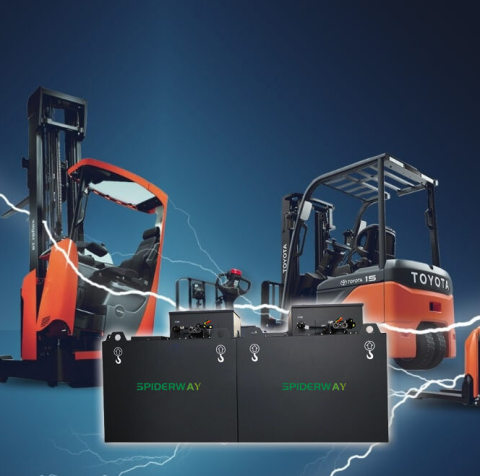 48V 606Ah LiFePO4 lithium battery for HELI forkliftOriginal price was: $7,999.00.$7,978.00Current price is: $7,978.00.
48V 606Ah LiFePO4 lithium battery for HELI forkliftOriginal price was: $7,999.00.$7,978.00Current price is: $7,978.00. - Product on sale
 80V 404Ah LiFePO4 lithium battery for HELI K2 3.5T forkliftOriginal price was: $8,399.00.$8,310.00Current price is: $8,310.00.
80V 404Ah LiFePO4 lithium battery for HELI K2 3.5T forkliftOriginal price was: $8,399.00.$8,310.00Current price is: $8,310.00. - Product on sale
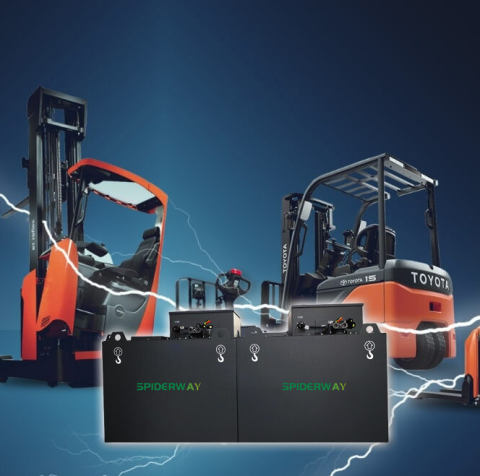 48V 404Ah LiFePO4 lithium battery for LIUGONG 2.5TforkliftOriginal price was: $5,399.00.$5,318.00Current price is: $5,318.00.
48V 404Ah LiFePO4 lithium battery for LIUGONG 2.5TforkliftOriginal price was: $5,399.00.$5,318.00Current price is: $5,318.00. - Product on sale
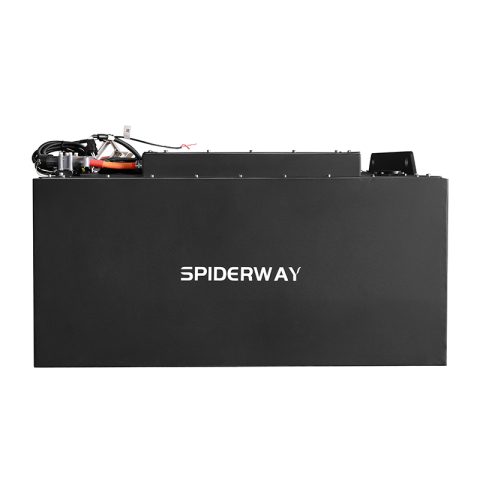 80V 544Ah LiFePO4 lithium battery for TOYOTA forkliftOriginal price was: $11,199.00.$11,190.00Current price is: $11,190.00.
80V 544Ah LiFePO4 lithium battery for TOYOTA forkliftOriginal price was: $11,199.00.$11,190.00Current price is: $11,190.00. - Product on sale
 48V 272Ah LiFePO4 lithium battery for LIUGONG forkliftOriginal price was: $3,599.00.$3,581.00Current price is: $3,581.00.
48V 272Ah LiFePO4 lithium battery for LIUGONG forkliftOriginal price was: $3,599.00.$3,581.00Current price is: $3,581.00. - Product on sale
 24V 202Ah LiFePO4 lithium battery for LINDE T20 forkliftOriginal price was: $1,399.00.$1,329.00Current price is: $1,329.00.
24V 202Ah LiFePO4 lithium battery for LINDE T20 forkliftOriginal price was: $1,399.00.$1,329.00Current price is: $1,329.00. - Product on sale
 48V 544Ah LiFePO4 lithium battery for HELI CPD20-F1 forkliftOriginal price was: $7,199.00.$7,162.00Current price is: $7,162.00.
48V 544Ah LiFePO4 lithium battery for HELI CPD20-F1 forkliftOriginal price was: $7,199.00.$7,162.00Current price is: $7,162.00. - Product on sale
 48V 165Ah LiFePO4 lithium battery for AGVOriginal price was: $2,199.00.$2,172.00Current price is: $2,172.00.
48V 165Ah LiFePO4 lithium battery for AGVOriginal price was: $2,199.00.$2,172.00Current price is: $2,172.00.
Choosing lithium batteries from SpiderWay is not just a decision based on the initial cost; it’s a strategic investment in the long-term efficiency and safety of forklift operations. The comprehensive cost savings in labor, energy, and maintenance, coupled with the superior performance of lithium batteries, make them the smart choice for forward-thinking warehouse managers.
Author Profile

- https://tawk.to/chat/6228c78d1ffac05b1d7dc569/1ftnkn0nk
- SpiderWay LiFePO4 battery sales engineer with ten years of experience in industrial vehicle batteries, ready to answer any questions you may have about industrial LiFePO4 battery products.
Latest entries
Industry NewsNovember 13, 2024Analysis of the Demand for Chinese LiFePO4 Power Batteries in the Brazilian Market
DOOSANNovember 13, 2024South Korea LiFePO4 Battery Brands and Successful OEM Collaborations with Chinese Manufacturers
Industry NewsNovember 12, 2024Analyzing the Demand for Chinese LiFePO4 Power Batteries in Turkey’s Market
Industry NewsNovember 12, 2024การวิเคราะห์อุตสาหกรรมผลิตและความต้องการตลาดของแบตเตอรี่ลิเทียมไอออน LiFePO (LFP) ในไทย

